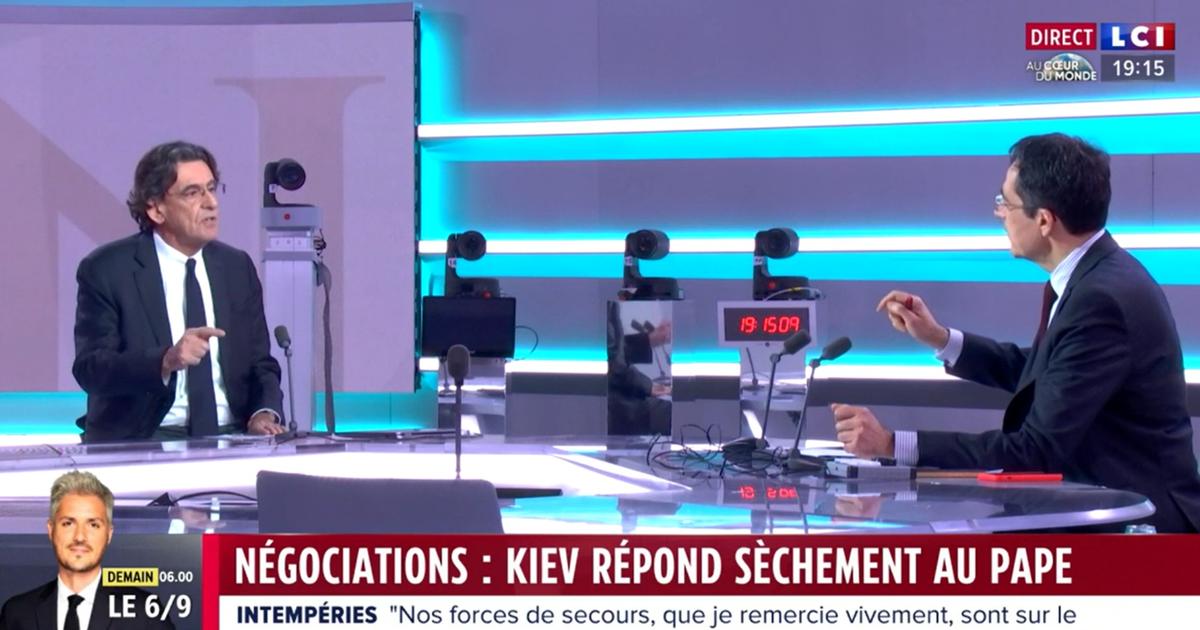With internet startups, Thomas Bachem earned his first million even before he was 30. During his studies, the software developer founded several companies and sold them after a few years. Bachem's video portal went to Burda-Verlag in 2010, his CV editor in 2014 to Xing. Three years ago, the native of Cologne founded his own private university: the Code University in Berlin.
The university has the claim to be different from state universities - and finances itself quite differently. Bachem believes it could be commercially beneficial to him in case his students do successful business in the future, and he may be able to get involved early on.
SPIEGEL: Mr. Bachem, you have sold some of your existing foundations after a few years. When do you get off at Code University?
Bachem: Interestingly, some parents of our prospective students ask the same question. My CV also suggests that. The code is not an internet startup. I planned them from the beginning with a much longer time horizon. For a few decades, I'm going to run it myself.
SPIEGEL: What's your opinion on this subject?
Bachem: I have so much fun here and learn something every day. We want to create an ecosystem for talents and founders from around the world. Being financially involved in emerging start-ups later on can be economically interesting. I would be stupid to give this chance out of my hands.
SPIEGEL: Until the bet comes up in the future, money is needed in the present. What does the code business model look like?
Bachem: The code is to be carried 75 percent of tuition. A degree course costs us 30,000 euros, so over three years 822 euros per month. However, most students do not pay directly for their studies, but spend 7 to 9 percent of their gross income on the university in the first few years after graduation - if that amounts to at least 21,000 euros per year.
SPIEGEL: Who will pay the university the remaining 25 percent?
Bachem: The remaining 25 percent comes from sponsors and partner companies such as Porsche, Zalando, Metro or even Facebook. The partner companies make an annual contribution. In return, they can realize projects with our students and promote themselves as employers.
SPIEGEL: Since 2017, you have been paying for the professorship of Artificial Intelligence from Facebook. A company that is controversial for a variety of reasons. Facebook, for example, in the Cambridge-Analytica affair in the criticism - a data analysis company, which also worked for Donald Trump in the US election campaign, could tap data from millions of Facebook users. Did you ponder after the scandal?
Bachem: Of course, the affair has sparked a lot of discussion at our university.
SPIEGEL: What did the students think critically? What reservations were there?
Bachem: The overwhelming majority of our students deal critically with the influence of technology and technology companies such as Facebook on our society. At the same time, our students are aware that Facebook is an influential part of our society today that should not be ignored. In the end, we came to the conclusion that Facebook, because of its expertise and infrastructure, is a partner from which our students can greatly benefit.
SPIEGEL: What would be a reason for separation?
Bachem: Of course, if Facebook wanted to intervene in teaching or research. We are a state recognized university. Freedom of science applies here - our partners must accept this.
SPIEGEL: That Facebook is controversial in itself does not bother you?
Bachem: The world is not black and white, our students know that too. Since the Cambridge-Analytica affair has changed a lot on Facebook. Two billion people use Facebook every day to communicate with their friends. We want to enable our students to understand the opportunities and risks of new technologies themselves and to actively shape them. At the same time, the partnership does not prevent us from critically discussing with and via Facebook.
SPIEGEL: You once said that with the code you had founded a university in which you would have liked to study. What bothered you at other universities?
Bachem: When I was twelve years old, I began to teach myself to be self-taught - guided by childish curiosity and concrete application ideas. For me, software development has always been a creative process. The offers of state universities, especially in the area of computer science, had a very theoretical impact on me, being dry and mostly not geared to practical aspects. In addition, I found the size and anonymity of many colleges dissuasive.
SPIEGEL: What are you doing differently?
Bachem: Our entire study concept is designed to strengthen students' self-learning skills. They should be able to independently develop new knowledge. We therefore give them project tasks and hopefully arouse curiosity, in order to let them search for solutions largely alone.
SPIEGEL: What does that mean in concrete terms? An example, please.
Bachem: For example, in a project the students set themselves the goal of developing a robot that can move autonomously in disaster areas and locate people spilled by sensors. Encouraged by this goal, the student team faces new challenges every day. The task of our professors is to support the students in these learning processes.
SPIEGEL: Every second computer science student throws out studies at state universities. What is the quota for you?
Bachem: At the moment it is about 10 percent, so we are very satisfied. The comparatively low odds are also due to the fact that we explain to people in advance exactly what to expect here.
SPIEGEL: If you have to put 30,000 euros on the table, maybe that's why you're reluctant to drop out of college.
Bachem: May be. But certainly also plays a role, that we really make an effort in the selection of freshmen. Anyone who studies here does so very consciously. Out of around 1000 applicants, we only took 150 this year.
SPIEGEL: How do you choose your students?
Bachem: We have a multi-stage process that begins with a written application. Then we give our applicants a job that they can solve in different ways. We care about creativity.
SPIEGEL: What about diversity? The proportion of women in your university is just under 22 percent, about the same with state universities.
Bachem: Here we have to get even better. We need more women in technical jobs and we want to do our part. What I am very pleased, however, is that the student body is still very diverse with us. Of the 150 students who joined us this month, almost half come from abroad - from over 65 different countries.












